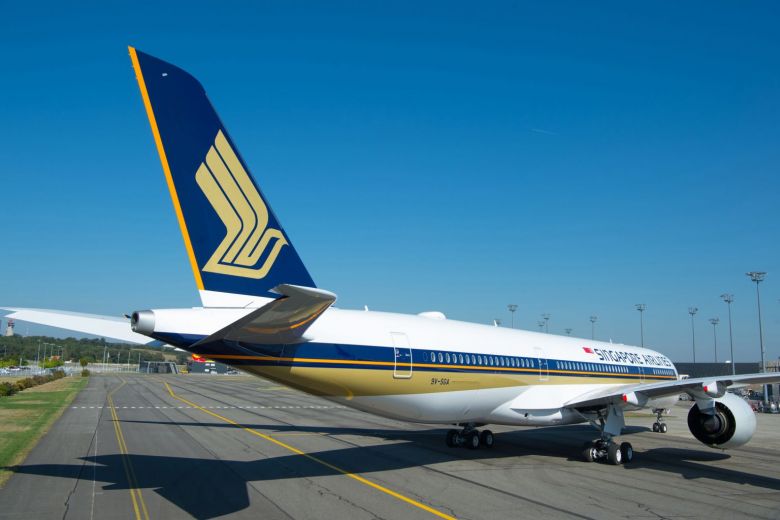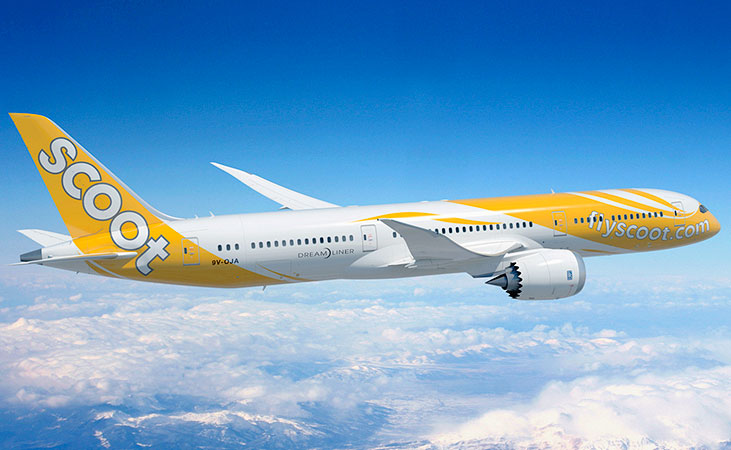Covid-19: Scoot & SIA offer cash refund, bonus travel credit

Due to the cash flow crunch caused by the Covid-19 pandemic, many airlines are bending over backwards to avoid giving refunds.
Just a couple of weeks ago, the US and the EU regulators had to issue statements, reiterating the rules regarding refunds for flight cancellations — passengers are entitled to cash, not just credit, even during a pandemic.
Fortunately, both Singapore Airlines and Scoot have, recently, released clear rules regarding refunds.
While passengers were previously only eligible for flight credits, the revised policy now offers 100 per cent cash refunds, or bonus flight credits.
Here’s how it works.

To be eligible for a refund, your ticket must be:
Eligible passengers can opt for a 100 per cent cash refund of the unused value of their ticket.
If your ticket is completely unused, you’ll get back the total fare and taxes paid.
If your ticket is partially used, you’ll receive the total fare and taxes less than the fare of the flight sectors that have been utilised.
For example, you may have booked a ticket from Singapore to San Francisco via Hong Kong, but only flown from Singapore to Hong Kong leg.
Singapore Airlines will calculate the value of the Hong Kong to San Francisco leg and refund that part to you. How they calculate, however, is at their discretion.
Alternatively, eligible passengers can opt for a refund in flight credits instead. If you take this option, Singapore Airlines will award some bonus flight credits depending on which cabin you’re flying in:
*Note: if your ticket contains a combination of fare classes, the bonus flight credit will be based on the higher cabin class
[[nid:484298]]
Interestingly enough, the bonus flight credit does not depend on how much you paid for your base fare. In other words, someone who booked a $198 Economy fare to Bali would receive the same bonus as someone who booked a $1,198 Economy fare to London.
Bonus flight credits are granted per ticket, regardless of the number of legs. Therefore, holders of a one-way ticket receive the same bonus as holders of a round-trip ticket.
Bonus flight credits are valid up to June 30, 2021, and are only available on completely unused tickets that have not been redeemed with miles, or paid for with a combination of miles and cash.
More details on Singapore Airlines’ refund policy can be found here.

To be eligible for a refund, your ticket must be:
Eligible passengers can opt for a 100% cash refund of the unused value of their ticket. Scoot has warned that refunds may take up to 14 weeks to be processed
Alternatively, eligible passengers can opt for a refund in Scoot vouchers instead. If you take this option, Scoot will award a 20 per cent bonus on top of the original amount (i.e. 120 per cent total).
Scoot vouchers are valid for 12 months, and up to 2 vouchers can be used per transaction.
More details on Scoot’s refund policy can be found here.
This depends entirely on your current cash flow position.
If you have a significant amount of cash tied up in air tickets and face liquidity issues, it goes without saying that you should request for a refund ASAP to get your money back.
However, if you have no such concerns and you intend to travel as soon as it’s feasible, the bonus flight credits can help cover any fare differences at the point of rebooking.
Remember that even though Singapore Airlines is waiving change fees, you’re still on the hook for fare differences.
To illustrate this, consider the scenario below:
| Type | Original Date | Revised Date |
| Fare | $703 | $1,400 |
| Taxes | $142.20 | $142.20 |
| Fare Difference | – | +$697 |
| Change Fee | – | Waived |
Consider that this person has bought a ticket for $845.20, of which $142.20 comprises taxes, and $703 is airfare.
He subsequently changes his travel dates, but the airfare on the revised date has increased to $1,400.
Although he doesn’t need to pay any change fees, he’ll still need to pay the $697 fare difference.
[[nid:480946]]
As a general point, when accepting flight credits in lieu of a refund, it’s important to evaluate the health of the airline in question.
It’s no secret that some airlines will not survive this crisis, and the last thing you want to do is end up as an unsecured creditor.
This isn’t so much an issue with a government-backed airline like SIA, but could be a concern with some foreign carriers.
Also, for those of you who collect miles, be careful when opting for a cash refund. Despite the ‘cash’ moniker, refunds are actually processed back to your original mode of payment, which, for most people, will be a credit card.
If you used the air tickets to hit the minimum spend for a sign-up bonus, getting a refund could result in the bank clawing back your points.
Take the following demonstration, where the cardholder needed to spend $5,000 by 31 December 2019.
| Date | Transaction | Amount |
| Dec 26, 2019 | $1,000 | Dining |
| Dec 27, 2019 | $4,000 | Air tickets |
| Jan 3, 2020 | $3,000 | Hotels |
| Jan 4, 2020 | $2,000 | Shopping |
| April 13, 2020 | -$4,000 | Refund of Air tickets |
On December 27, 2019, he purchased air tickets for $4,000, which were subsequently refunded on April 13, 2020. The December 27, 2019 transaction is effectively reversed, meaning his total spending, as of December 31, 2019, was only $1,000.
It doesn’t matter that the cardholder later hit $5,000 with his spending on 3 and 4 January — the cutoff point was 31 December. The bank is technically entitled to claw back points from the sign-up bonus.
Given that most people purchase air tickets well in advance, it’s easy to forget what credit card you used. So, do be careful if you’re in this situation, otherwise, your refund may end up costing you more.
It’s good to see Singapore Airlines and Scoot doing right by customers and providing refunds for cancelled flights.
This, of course, won’t be a cheap exercise, but it does create passenger goodwill that protects the brand and positions them for an eventual recovery.
For the latest updates on the coronavirus, visit here.
This article was first published in SingSaver.com.sg.